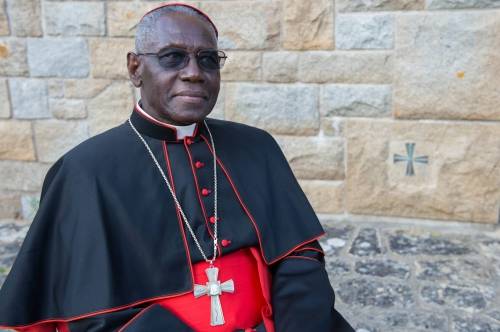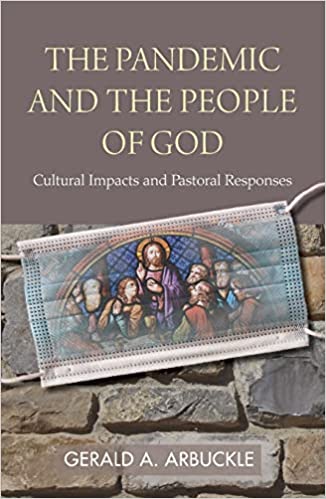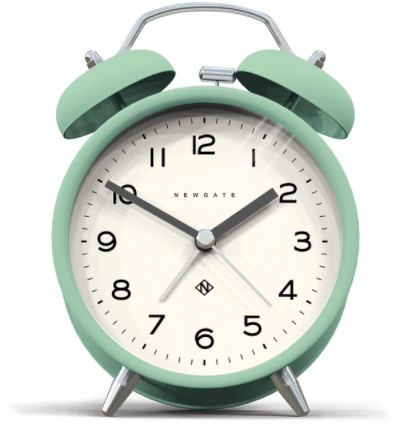During the pandemic, more people have been connected with churches, mosques, synagogues, and other places of worship. There has been an uptick of young people who express interest in spirituality. According to a Pew Survey in April 2020, 24% of US adults said their religious faith has been strengthened due to the pandemic, while only 2% said it has been weakened (47% said it’s been the same, and 26% said they were non-religious).

Different religious leaders have offered insights into the impact of the pandemic on spirituality. For Cardinal Robert Sarah, the Guinean prelate who served as Prefect of Divine Worship and the Discipline of the Sacraments, the coronavirus is a warning. It cautions us against the illusion of a material world and the beliefs in human power and technological advance to control the world.
Rabbi Michael Rothbaum says that Jews have survived catastrophes and crises before. Jews have created the entire tradition to be portable in an inhospitable world of exile. There is a familiarity to it when facing the pandemic. There have been more people attending Sabbath and other gatherings.
Different books have been published on the pandemic and faith. The notable ones include former Archbishop of Canterbury Rowan Williams’s Candles in the Dark and Walter Brueggemann’s Virus as a Summons to Faith, and the anthology To Whom Shall We Go: Faith Responses in a Time of Crisis edited by Irene Alexander and Christopher Brown.

I would like to recommend The Pandemic and the People of God by New Zealand-born Marist priest and cultural anthropologist Gerald A. Arbuckle because it provides an anthropological lens to look at the pandemic. He uses “cultural trauma” to describe what we have experienced during the pandemic. This is the sudden collective breakdown of order, bringing chaos and creating fear and anxiety.
Cultural trauma leaves indelible and paralyzing marks on our collective consciousness. Arbuckle describes the movement from trauma and chaos to healing and re-establishing order as a rite of passage. He writes, “when people and cultures are traumatized, their movement forward into new life through chaos can be a rite of passage with three identifiable stages: separation, liminality, and reentry” (p. 40).
He says ritual leaders play an important role in helping the community go through different stages in the rite of passage. Rituals are important for our individual and collective lives for they provide meaning and stability. He defines ritual as “the repetitive spontaneous or prescribed symbolic use of bodily movement and gesture to express and articulate meaning within a social context in which there is possible or real tension/conflict and a need to resolve or hide it” (p. 16).
He asks us to consider the collective impositions of Covid on our lives as rituals. We need to put on masks, keep social distancing, wash hands often, and teach or work online. We are asked to develop new rituals. Some can adjust to them; others find it hard.

This makes me think about the daily rituals we have done to shape and design our lives and how Covid might have disrupted them and what new rituals we need to put into practice to re-balance our lives.
Churches and faith communities have to move their worships and other gatherings online or use a hybrid model. How have these changes affected people’s worship experiences? How might the pandemic lead us to think about worship, ritual, and sacrament anew? For example, there have been rich conversations about the viability of “virtual Eucharist” and the meaning of such words as real, virtual, presence, and communion in the Anglican Church of Canada.
What kind of ritual leaders do we need for the future? What kind of ritual skills they might need and how can we form and prepare them? These are important questions for churches and faith communities to ponder.

It is reassuring to know that all of the human family is interconnected or that we inter-be (in honor of Thich Nhat Hanh). Even a pandemic can remind us of the intrinsic nature of our mutual destinies. White, Black, Gay, Straight, Democrat, Republican – we all inter-be whether we want to or not. -D. E. Paulk
the Sacraments, the coronavirus is a warning. It cautions us against the illusion of a material world and the beliefs in human power and technological advance to control the world
o served as Prefect of Divine Worship and the Discipline of the Sacraments, the coronavirus is a warning. It cautions